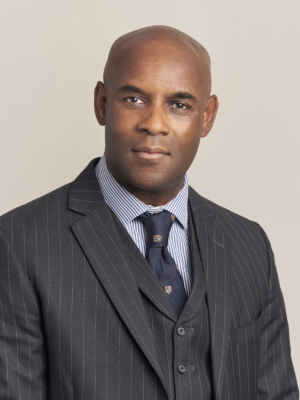
Many of us still wince at the stereotypical view that the Bar and judiciary are predominantly made up of posh white men, especially those of us practicing, who don’t fall into such categories. Perhaps the reason why such depictions are quite so grating, is that these stereotypes are still overwhelmingly true.
Notwithstanding the many initiatives that have been put in place over the last few years, the ‘needle on the dial’ is still moving at a glacial rate towards greater diversity.
Figures show that the proportion of non-white and under-represented groups coming to the Bar is still well below the national average for the population and let us not forget that diversity is not just confined to people of colour and gender.
For us to have a truly diverse profession that reflects the communities that we serve, we also need to encourage social mobility and be open to attracting people with disabilities, those who are LGBTQ+ and/or neurodivergent.
I accept of course, that there many complex reasons why the Bar is still failing to attract people who fit into these under-represented categories but perhaps one of the most obvious is money. One thing that we can all agree on, is that joining the Bar is still a very very expensive endeavour indeed.
That is why the North Eastern Circuit (NEC) we are seeking to address these issues by putting our money where our mouths are.
In 2020, we set up the NEC Scholarship Fund. The fund has recently been awarded charitable status and last year alone, we were able to give £15,000 to assist promising students from underrepresented backgrounds, who could demonstrate that they may not have been able to pursue a career at the Bar, due to barriers created by the exorbitant cost of qualifying.
The way that the scholarships work is very simple and the model used by the NEC is one that could easily be adopted by all the circuits across the country.
The NEC Scholarship Fund has its own bank account and all members of circuit, judges, barristers and chambers are asked to contribute. Last year, junior barristers paid £10 each, silks and judges £25 and individual chambers can also make a voluntary additional donation, with most chambers contributing at least £500 each.
Every year the Scholarship Committee chooses six institutions from across circuit and invites them to nominate two pupils each, who meet the eligibility criteria. This includes someone in their last year at university, or who is studying for the BPTC and who is from an underrepresented group and who is committed to pursuing a career at the Bar on the NEC and who can demonstrate that their financial position is such that they may not be able to enter the profession without additional assistance.
The term ‘underrepresented group’ is given a wide interpretation and includes, but is not limited to, those from ethnic minority backgrounds, those who are female, people with disabilities (whether physical or neurological), people from low-income backgrounds, plus those who are the first in their families to go to university, care leavers and care givers.
Nominees are then asked to submit a personal statement of no more than one side of A4, setting out their history, academic and personal achievements, financial position and how they would use a financial award.
At the interviews, each candidate is asked to do a short presentation and the committee decide on the top three candidates who will receive a scholarship. However, even though we cannot give financial assistance to every applicant, the committee ensures that all 12 candidates are assigned a personal mentor and are given a mini-pupillage, which we think is a valuable offer in its own right and costs relatively little to provide.
The beauty of this scheme is in its simplicity and effectiveness. Everyone on circuit can contribute in a real and tangible way. The university or BPTC provider can do the heavy lifting regarding the sift, having applied a mutually agreed selection process and all the interviews can usually take place within a day. This is a process that really works in practice.
Details and testimonies from the successful candidates can be found on the NEC website.
Over the last few years we have been able to give meaningful financial assistance to promising candidates who do not fit the stereotypical mould, some of whom have also struggled with health problems and debt, amongst other things.
Many successful candidates speak not just about what receiving the money means to them, but also the boost to their confidence and their feelings of acceptance that being made an NEC Scholar brings.
I am therefore delighted to say that most of our Scholars have since gone on to obtain pupillages and are not just changing the face of our profession but are also helping to finally move the needle on the diversity dial, with a little more urgency.
Finally, it is my hope that all Circuits across the country will be inspired to set up similar scholarship programmes and if anyone wishes to find out more (or make a donation), then please do not hesitate to get in contact.
Glenn is Chair of the NEC Scholarship Fund. He was called to the Bar in 1999 and specialises in crime. Glenn established the NEC Diversity Outreach Programme in 2020 to bring practitioners across circuit together with a view to maintaining a coordinated approach to tackling diversity issues.